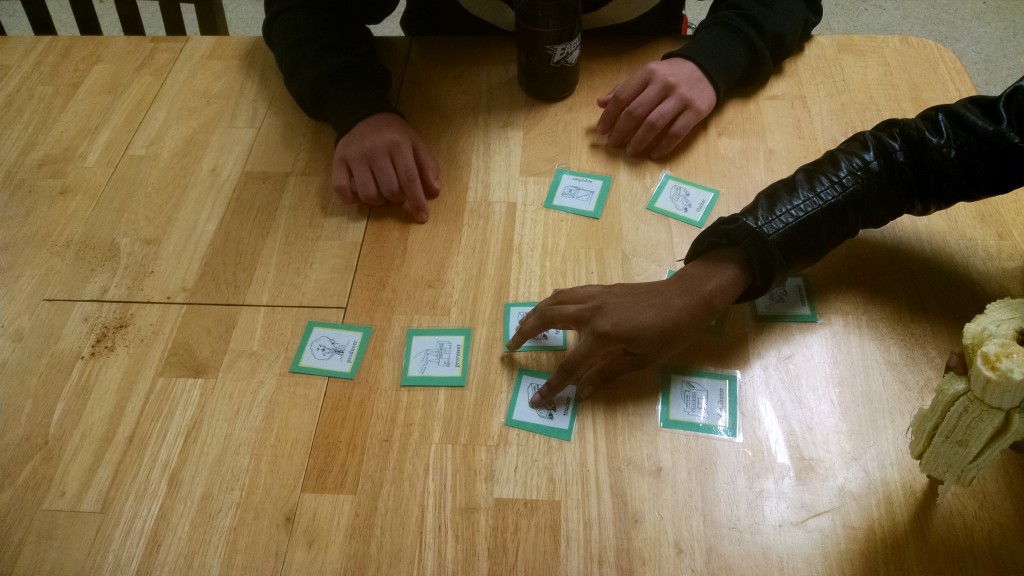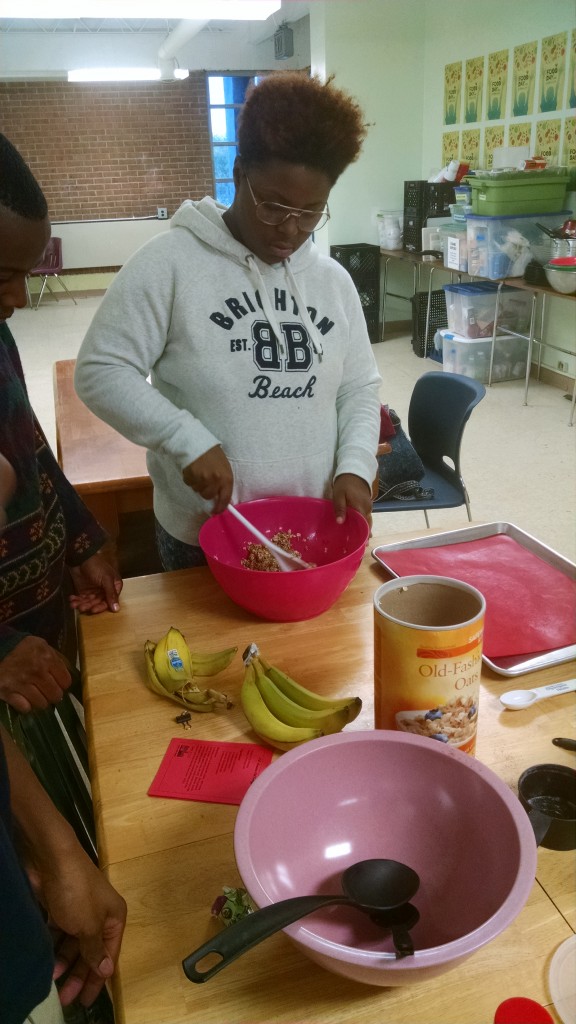Youth Crew 2015 Day 11
To start every afternoon with Youth Crew we make a snack to fuel us for our two hour session. Today we made Energy Balls, combining bananas, oats, and peanut butter for some high-energy snacks (see recipe at the end of this post).
Next we looked closer at how our food gets to us by learning about the food system and putting each piece of the food system into a sequence. Our set of food system cards include producer, trucker, processors, supplier, distributor, retailer and consumers. Once in order, they show us how complex our food system is. For example, the oats that we ate for snack were touched by many hands, from the seed suppliers, the farmers and field hands who grew and harvested them, the truckers who drove them to a processing facility for packaging, the distributors who store them in their warehouses before they go to a retailer, the consumers who eat them, and the waste managers who deal with the leftover packaging.

By learning about the current food system, we can begin to think about alternatives. Youth Crew discussed what Real Food Farm’s food system sequence looks like, in comparison to a conventional food system. Because we grow and sell more locally, we can avoid the time and energy used in trucking and storing produce, resulting in a food system that can be both better for the environment and maintain produce with high nutritional value.
To wrap up our session, we discussed ways that youth have influence in the food system. Considering all the steps involved in getting food to us, where are the ways that we have power over the food we eat? Maybe purchasing snacks from certain vendors and not others? Or growing food in our backyards? Youth Crew members thought that more youth should have the chance to visit Real Food Farm in order to learn to take control of their food!
About Real Food Farm
Real Food Farm works toward a just and sustainable food system by improving neighborhood access to healthy food, providing experience-based education, and developing an economically viable, environmentally responsible local agriculture sector.

